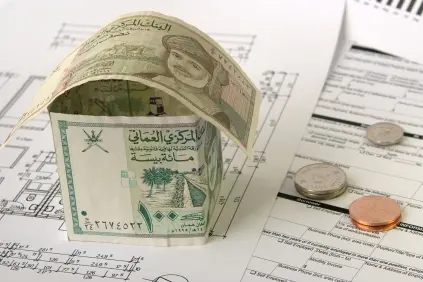PHOTO
November 19, 2016
Muscat: The implementation of value added tax (VAT) is expected to add close to a billion dollar to government coffers as per an estimate by the International Monetary Fund (IMF).
According to IMF, VAT, a consumer tax, will account for nearly 1.5 per cent of the gross domestic product although the amount can fluctuate depending on variables such as compliance rate and exemptions.
While government policies on VAT are not conspicuously stated yet, they are expected to follow international standards that aim to minimise effects on the country’s economy. This includes the policy of exempting essential products and services such as food items and education or industries like export-oriented products, which will have adverse effects.
With tightening liquidity in the markets and lower disposable income due to dwindling oil prices, VAT is expected to have a certain degree of negative impact on Oman’s GDP; however experts argue that the rate of VAT is well below variance threshold.
“All taxes have a negative impact on the overall GDP of the country, but the rate planned is very low by international standards so we expect to have relatively lower impact,” said Justin Whitehouse, indirect tax leader – Middle East, Deloitte.
“Being a consumer tax, individuals will end up paying the VAT, which in turn will affect purchasing power and possibly have an impact on wage demands. If public perception about VAT remains negative, people may trade down and save money due to which high-end products may suffer,” he added. However, Whitehouse mentioned that individuals are more concerned about potential implementation of personal income tax and VAT is unlikely to cause a major change in public perception of the markets. Similarly, businesses are expected to consider VAT as more of a compliance issue rather than something that affects decision making.
Echoing his comments, Kanaga Sundar, head of research at Gulf Baader Capital Markets, explained that the VAT would be reasonable and it is needed in view of soaring deficit.
“Government clearly needs such reforms to increase revenue in these times. The rate of 5 per cent is too less to cause discomfort among general population,” he added.
The Omani government has recently announced the implementation of the VAT from January, 2018 and conventionally, there is a spike in sales in the time leading up to date of implementation of a tax.
According to Whitehouse, Oman’s retail sector, following similar trends, will see an increase in sales towards the end of 2017, especially in larger or more expensive items.
“As we approach the implementation deadline, it is reasonable to see the demand peak, especially for items like vehicles, household appliances, etc. Likewise, consumers may even choose to shop early for smaller items,” he said.
He also pointed out that businesses will need to consider the implication of these demands on areas including stocking, staffing and their ability to cope with financing them.
Since GCC economies often function in a similar fashion and aided by the general design of VAT systems,there would be less acute economic spillovers or competitive issues. Commenting on GCC implementation of VAT, Whitehouse said that it is expected that all Gulf countries would implement the law at the same time and any GCC country unable to implement VAT simultaneously can encourage illegal trade of taxed goods.
The law is definitely essential to GCC countries; however, the time period for enforcing the law is often debatable. Most experts have expressed concerns that early 2018 maybe a very small time-frame for companies to prepare IT systems and educate their employees. Whitehouse says that even though the companies should be able to get their IT systems ready within the next 12 months, the time is very tight. He advises that organisations need to prepare in advance instead of acting after the lawis enforced.
“Some businesses may wait for the law to become available, but our advice would be to start looking at IT systems now and consider getting resources in place. There are a lot of work that can be done in advance,” he said.
© Times of Oman 2016





















